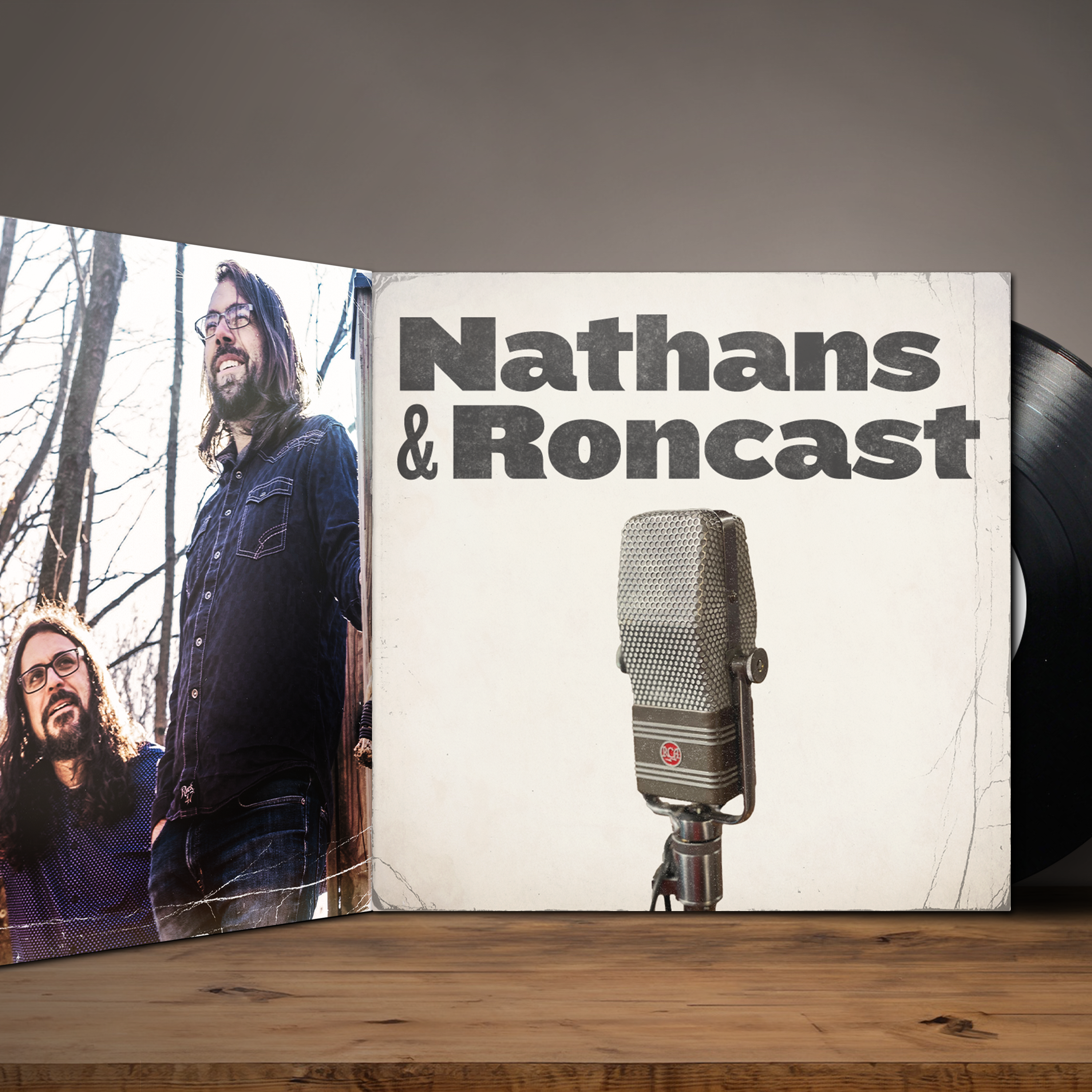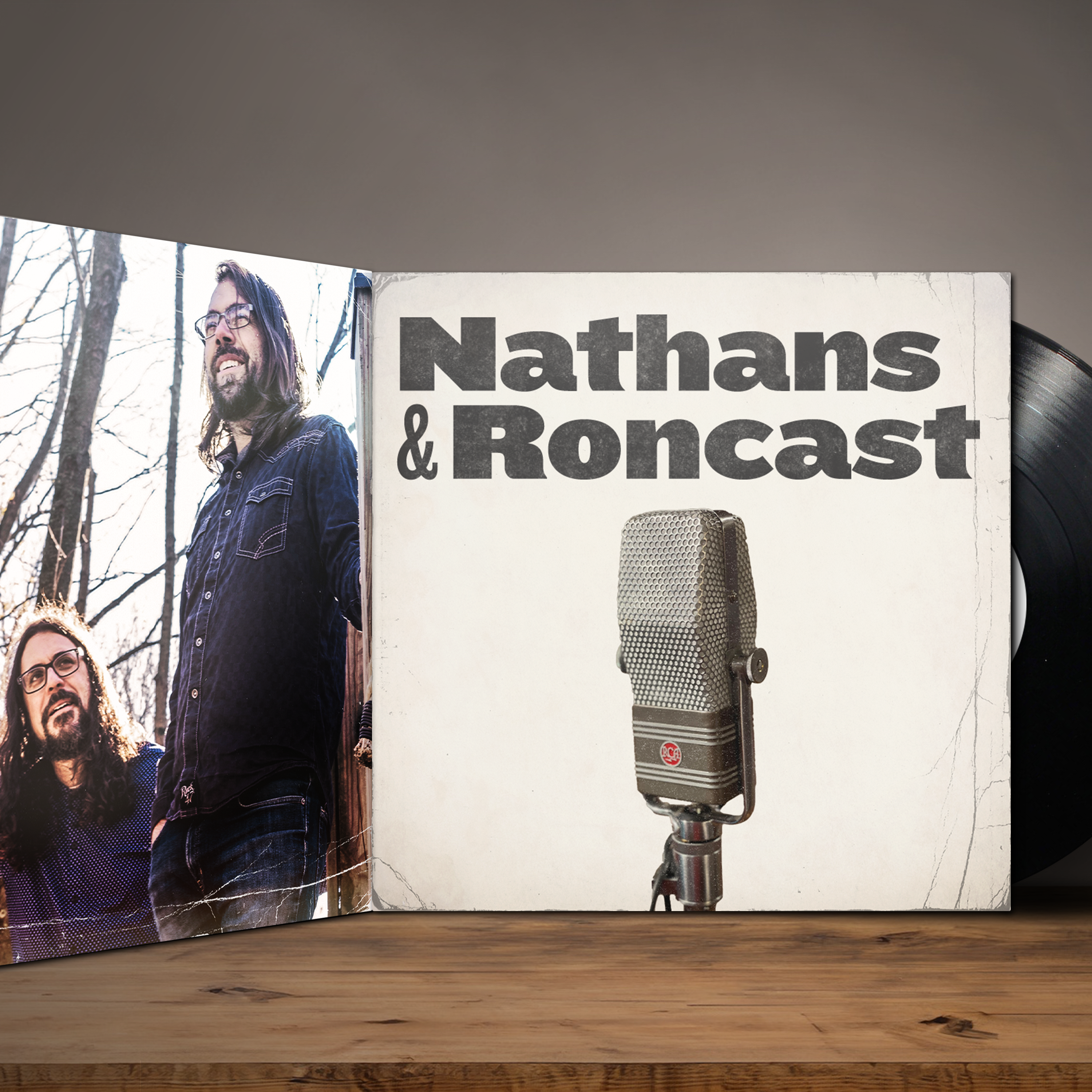Episode Transcript
[00:00:00] Foreign this is the Nathan's and Roncast. I'm Aaron Nathans. This past weekend, Michael and I were in the studio and I had a few lines I needed to fill in a song. And I wrote and recorded the line, baby, I'll be fine. And it wasn't until we left the studio that I realized I had broken my own rule of avoiding metaphorical use of that word baby. It was only a few weeks ago on this podcast that I said, if you use the word baby, there better be a screaming infant nearby. Now here I was trotting out this cliche that was used to sell cigarettes back in the day. You've come a long way, baby. The word has been a staple of songwriting since before we were born. One of the earliest uses on record was in Babyface, written by Harry Axt and Benny Davis, which came out in 1926. The word was used in romantic ballads and jazz and blues in the 1930s and 40s, long before my baby left me in Heartbreak Hotel or Baby I Love youe Way, or Baby, It's Cold Outside, or I'm your baby Tonight or Baby One More Time. The list is endless. But the term has always made me uncomfortable. I tend to look at words both in a literal and figurative way. It's part of the reason I don't like the word stupid, because it literally means slow of mind, which has offensive connotations. I also don't like the word sick being used as a compliment. If somebody has a sick body, that person is not doing well. Honoring the literal meaning of words is part of what informs my sensibility as a songwriter. Your mileage may vary if you look up the word baby in the Merriam Webster dictionary. Obviously the first definition is of an extremely young child. And the second is someone like a child, as in don't be a baby, go do that hard thing. The third definition is slang for a girl or woman. Just below that is listed as slang for a boy or man, as in, hey baby, nice car. I can't ever remember hearing it used like that for a guy. And the final slang usage of the word in the dictionary is as a non gender specific term of endearment. Hey baby, how is your day? Now that I've heard a lot. But outside of that familiar form, there is no clearer way to infantilize an adult than by calling them baby. Now, we think helpless infants are the cutest things on earth. And if you're saying it to someone sincerely, if you truly believe they are the most beautiful thing on earth, and you can say it to them openly. Chances are you're either in a relationship with them or maybe you're their parent. Chances are they either won't take offense or at worst, they'll roll their eyes at you. But if you're not speaking to a partner or child, perhaps you're saying it ironically, or even worse, as a Come on. Now we're starting to get into potentially problematic territory, because now you're diminishing the person calling them helpless, childlike, and dependent on others for survival. If you're going to use the word, think about it, think of what you're trying to say and ask yourself if it's serving that purpose. It's a filler word, but it's also rich with meaning, so don't use it carelessly like I did. Still, I'm tempted to keep the line in our song once I've laid down a vocal track, especially if I've written and recorded something in the moment. I'm reluctant to rock the boat because that moment will never come back again, and it will never sound as spontaneous or authentic again. But in the back of my mind, I'll probably continue to have mixed feelings about it. Thanks for listening. Talk with you soon, baby. Peace.


